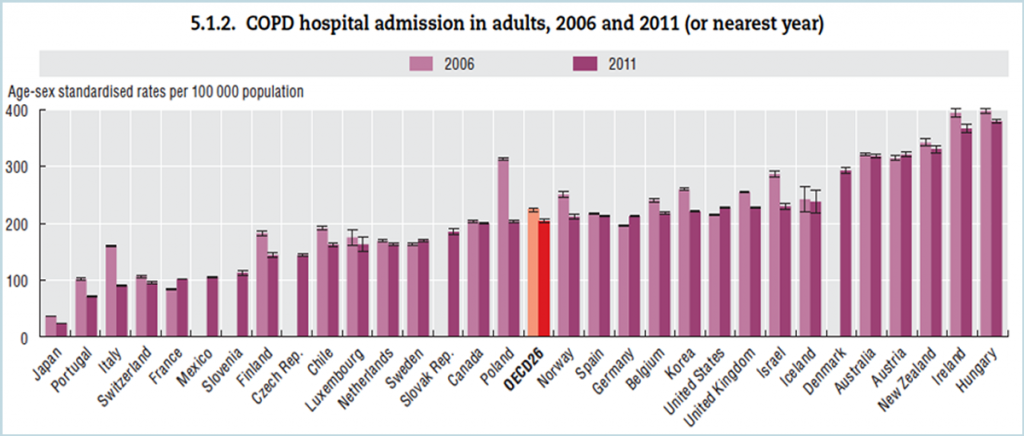On 25th September, the UN formally adopted its 17 sustainable development goals (SDGs) and 169 targets for 2030. These goals build on and expand the Millennium Development Goals (MDG), and integrate the economic, social and environmental aspects of sustainable development. Non Communicable Diseases (NCDs) along with other major risk factors are linked to several of the SDGs. For instance, SDG3 pledges governments to “ensure healthy lives and promote well-being for all at all ages”.
Among the nine points that goal 3 covers, point 3.9 aims to achieve by 2030 a substantial decrease in the number of deaths and illnesses from hazardous chemicals and air, water, and soil pollution and contamination including strengthen implementation of the Framework Convention on Tobacco Control in all countries as appropriate. It is well known that poorly controlled asthma and chronic obstructive pulmonary disease (COPD) are directly related to point 3.9. The world population of tobacco smokers has been increasing inexorably, leading to more many more COPD patients being hospitalised globally (see chart). The more severe forms of these two NCDs are associated with fungal pathogens including species of Aspergillus with and estimated prevalence of more than 10 million people worldwide. COPD patients are especially vulnerable to invasive pulmonary aspergillosis, a serious condition with a very poor prognosis. 
GAFFI’s aims are clearly aligned with the new UN SDGs because as goal 3 states, GAFFI seeks to support research and development of vaccines and medicines for the communicable and non-communicable fungal diseases that primarily affect developing countries, provide access to affordable essential medicines and vaccines. GAFFI argues for a substantial increase in health financing, and the recruitment, development, training and retention of a health workforce in developing countries focussed on NCDs involving fungal infection and allergy to strengthen the capacity of all countries, particularly developing countries, for early warning, risk reduction, and management of national and global health risks. Moreover, GAFFI aims to make the global community aware that severe complications of some NCDs are caused by fungi, especially in COPD and asthma, two diseases with a high incidence and prevalence and poor prognosis in terms of morbidity and mortality.
Millenium Development Goals 2030
Abbreviations:
IPA Invasive Pulmonary Aspergillosis
MDG Millennium Development Goal
NCD Non-Communicable Disease
SAFS Severe Asthma with Fungal Sensitivity
SDG Sustainable Development Goal
UN United Nations organisation